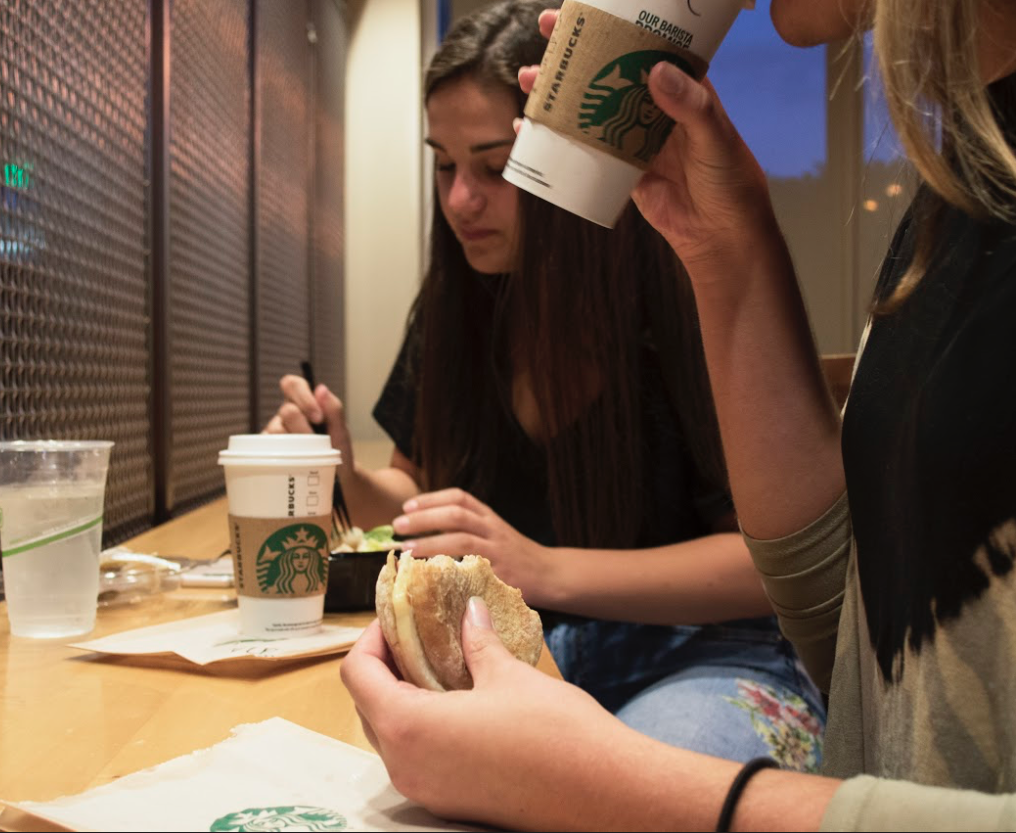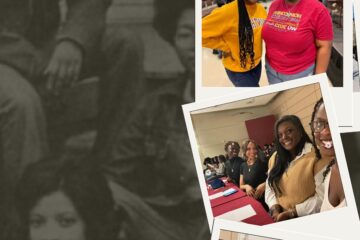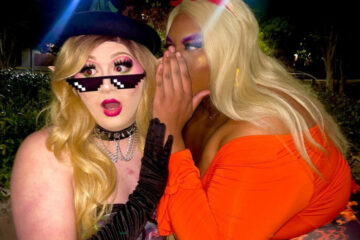Fair trade programs are designed to assist farmers, giving them a fairer price for their products, according to sustainability coordinator Chris Johnson.
“It’s supposed to give less to the middleman and more to the farmer,” Johnson said. Wholesalers, like Walmart, get more money from farmers’ crops by selling the product for low prices. As a result, farmers do not see much profit.
“Sometimes, it can be a pretty significant difference for what they can get for their products,” Johnson said.
Coffee is a common fair trade item, along with tea, sugar, bananas and cocoa. Starbucks has a webpage about their fair trade practices. According to The Guardian, however, they have come under criticism from the Organic Consumers’ Association and other entities for the legitimacy of their fair trade practices.
Bryan Harriss, the general manager of Winthrop Dining Services, said that coffee is their primary fair trade product as well.
“Currently, we are using a Nescafé machine because of the short transition time we had to open,” Harriss said. “Since putting this machine in, we continue to receive very good comments about it so we have stayed with it versus moving to one of Sodexo’s fair trade offers for coffee.”
Nestlé, which owns Nescafé, started participating in certified fair trade practices in June 2017.
Fair trade items is not reserved for just food. Items like gold, flowers and cotton are also considered fair trade products, according to the Fair Trade Foundation.
“That’s disturbing that we have this inequity. We got the farmers that are so critical to producing what we consume, but they are getting so little,” Johnson said.
Johnson met with Sodexo frequently about fair trade policies with local food products.
“Sodexo requires our food suppliers to aggressively purchase from local partners whenever possible,” Harriss said. “We often contract with local bakery and dairy business to support the local business.”
Johnson communicates with many departments and offices on campus about sustainability efforts including fair trade but he is not responsible for enforcing his recommendations.
“It’s just about getting that information out there. I can’t make anyone do anything. Behavior change is difficult. It’s all about education,” Johnson said. “We constantly get new people at Winthrop, so they need to be informed and educated, as well.”
Part of the responsibility of fair trade falls on the consumer, according to Johnson. Consumers need to look into the “hidden costs” of a product they are buying, such as farmer welfare and wages, environmental impact and “ecological services,” such as clean air and water.
“As a consumer, we should be taking responsibility for what we are buying and what we are consuming is not harming other people. Investigate what we’re buying. Understand what we’re consuming,” Johnson said.
Johnson gave the example of a woman’s testimony from the Story of Stuff, a 20 minute animated documentary about how material goods are made and its consequences on larger society.
“She talks about buying a $5 radio. She asked herself, what are the extra costs of that radio?” he said. “And it’s done through low wages of the people who put the radio together. It’s done through the low wages of retail workers. It means no health insurance, or them having to pay 90 percent of their health care insurance. It’s the natural resources that are destroyed for the production of the product. We don’t pay for that.”
Consumers can demand some products as part of their responsibility. Winthrop Bookstore Manager Chelsea Havner said that she tried including more organic foods or snacks in the bookstore but they never sell.
“I’ve tried to order the ‘healthy stuff,’ and it just doesn’t sell. So, I switched it out for gummy worms or M&M’s,” Havner said. “If it’s a request, that is absolutely something I can order, but in the past it hasn’t sold. I don’t think I’ve had students in the past come in and ask me that. Usually, they just want more junk food and gum.”
Barnes & Noble does use fair trade clothing vendors, but are “higher-end general clothing products.” They are either not licensed to sell collegiate wear, or they are too expensive to sell to students.
“We live in a cyclical world. We impact something, it’s going to flow down the stream and going to hit a lot of different people,” Johnson said. “If you’re not paying enough for fruits and vegetables, somebody is getting hurt. Yes, you’re saving a couple bucks, but somebody else is paying that cost in some other way.”




